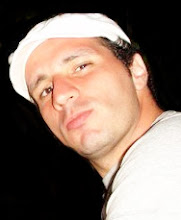- masters of of major schools of thought
- people who are able to integrate ideas from different disciplines
- those with a knack to uncover and understand new problems and phenomena
- some that are able to appreciate differences among societies and humans
- and the highly ethical ones
I personally think hes getting close to the real deal, so to speak. While his Multiple Intelligence theory has had a lot of success, it is not a rule of nature to be good at one intelligence and dumb at the others. This new approach in which intelligences can be recombined, seems to go more with what the school system has been trying to achieve, which is a well rounded person who can master more than one subject but no necessary all of them.
Those who have shined have not been masters at one of the multiple intelligences that Gardner proposed but more like 3 or 4 of them. Nonetheless educators have been focusing too much on the idea of helping students that have one of the 7 intelligences as opposed to help them develop the other intelligences.
For example a math teacher will incorporate in his class visual representation or analogies of the problem so that those with Spatial Intelligence will understand the subject, he will also try to get some physical evidence of the problem so that the Bodily-Kinesthetic students get some hand-ons experience, and also give a mathematical proof of the problem for those with a Logical-Mathematical Intelligence but will do nothing to help them develop the other. While some educators presume that by simply attacking the problems for all angles the students will develop other intelligences besides his string one, this has yet to show up in real life.
So following blindly his idea of multiple intelligences can hurt creativity and leave the work short of geniuses. It sometimes feel like "damn if you do, damn if you don't" but no need to despair, we are making progress. Howard himself has noted that his theory is not the final answer:
"As one who has thought intensively about multiple intelligences, I am more aware than most of the deficiencies in that theory; yet, I am far from declaring that my own theory has been refuted or that I have adopted a new holistic, unitary, or genetically determined view of the human intellect."
Gardner, H. (2004) Changing minds: The art and science of changing our own and other people's minds. Boston: Harvard Business School Press. p. 196.
This new book should help educator focus on developing broader minds and if not at least broad a little bit theirs. A recommended reading for those interested in education.


No comments:
Post a Comment